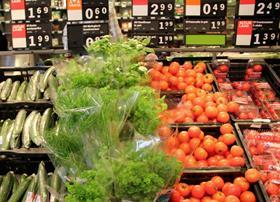
The European Commission this week released a communication encouraging member states to seek ways to improve protection of small food producers and retailers against the unfair practices of their sometimes much stronger trading partners.
The Commission's vice-president for internal market and services, Michel Barnier, commented: “As consumers, we may all shop at our local retailers but the food supply chain clearly has a European single market dimension. There needs to be a level and fair playing field between SME food suppliers and retailers on one side and large multinational manufacturers and supermarkets on the other side.'
Barnier said that unfair trading practices (UTPs) jeopardised this. These practices include refusing to put essential commercial terms in writing; retroactive unilateral changes in the cost or price of products or services; transfer of disproportionate risk to a contracting party; disrupting a delivery schedule to gain unjustified advantages; and terminating commercial relationships without notice or at an unreasonably short notice.
“The industry has already made important and valuable efforts to address unfair behaviour and should continue doing so,' he said. 'Member states should ensure that they have effective and consistent regulatory frameworks in place to build on and complement self-regulatory initiatives.”
European agricultural producers' federation Copa-Cogeca welcomed the Commission's recognition of such issues, but warned that a stronger and more ambitious approach was required.
'What we need are measures capable of curbing UTPs across the EU and preventing a fragmentation of the Single Market,' said Copa-Cogeca secretary-general Pekka Pesonen. 'In view of the different and sometimes diverging approaches to this problem in member states, it is unacceptable that the Commission, recognising the possible impact of UTPs on cross-border trade, does not assume its responsibilities and propose measures to create an EU-wide level playing field that enables the Single Market to work better. The absence of regulatory action at EU level in this communication leads to a fragmented approach capable of disrupting the Single Market.”
Copa-Cogeca also criticised the communication's reliance on a purely voluntary system to deal with UTPs, a point clearly recognised by the Commission itself when it states that 'there are limits to how far a self-regulatory initiative can go in providing for a dispute resolution mechanism'.
What Copa-Cogeca calls for is an independent third-party authority capable of applying sanctions in case of non-compliance with the codes of good practice, allowing farmers to make complaints anonymously and reducing the fear of retaliatory action by their clients.



